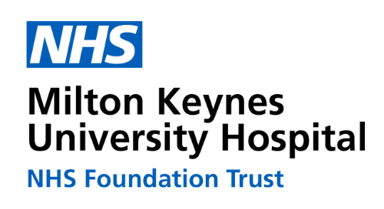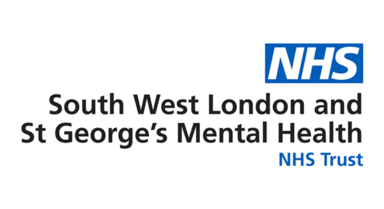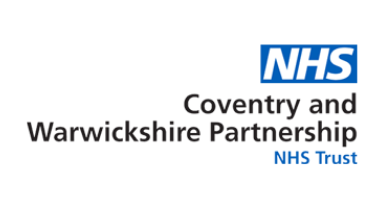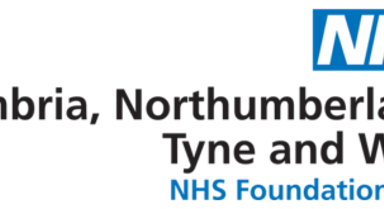At Queen Elizabeth Hospital King's Lynn, the adoption of BigHand’s Workflow Solution with Clinical Correspondence has reduced costs, improved compliance and transformed the speed of clinician communication with GPs and patients. As a key step in the Trust’s digital strategy, the shift to advanced workflow with digital dictation has also improved staff morale, enabled remote working and provided a foundation for far more flexible allocation of work across the Secretariat.
Accelerating the Digital Transformation Journey
Queen Elizabeth Hospital King’s Lynn NHS Foundation Trust (QEHKL) serves a population of around 331,000 people who are living in three counties of Norfolk, Cambridgeshire and Lincolnshire. Chief Executive Caroline Shaw was appointed in 2019 and immediately implemented a review of the Trust’s digital transformation progress. Departments across the organisation are now rapidly embracing an array of digital technologies to improve efficiency and deliver safe and high-quality patient care.
The quality and timeliness of communication between the Trust’s clinicians and local primary care and tertiary services was an immediate focus. With the NHS’ increasing drive towards digital communication, the Trust’s CCG contract states that all clinical outcome letters should be sent electronically to GPs. However, this could not be achieved while the 140 strong medical secretarial department was still using dated analogue dictation technology to produce around 500,000 letters each year.
QEHKL was sending paper letters to GP practices which was adding to the administrative burden for primary care providers: GP administrators had to scan letters into the system and manually add patient codes.
Digital Review
The process review highlighted a number of additional risks inherent with the analogue model. These included the dangers of lost tapes, meaning time-pressed clinicians had to re-dictate, potentially reducing accuracy; as well as the costs associated with a very manual process. The review also highlighted a delay causing the CCG to withhold payments or impose fines if GPs were not receiving letters on time. The adoption of a robust digital solution was essential.
After considering the options, including digital dictation, voice recognition or a fully outsourced secretarial service, QEHKL undertook an eight-week trial of digital dictation in conjunction with BigHand.
As Mark Parris, Account Manager at BigHand, explains: “Having created a clear baseline of current process and performance, the trial was designed to help the Trust understand both the potential benefits of moving from analogue tape to a digital solution and validate ideas around transforming the secretarial process. As with every part of the digital transformation journey, this is not just a technology change: there are implications for people and processes that need to be understood to ensure success.”
A group of secretaries and clinicians used digital dictation and provided weekly feedback, which was extremely positive. Consultants found the digital dictation a great way of prioritising urgent work; while the workflow also helped all users to track the progress of work. Comments included: ''Please don’t take it away from us, it’s so much easier to use and I don’t need to listen through [the whole tape] when finding individual patients,'' from one secretary; as well as ''Urgent letters have been typed before I’ve even finished my clinic and are ready to be signed,'' from a clinician.
Trust Wide Digital Solution
With the trial proving the business case for digital dictation specific to QEHKL, the Trust opted for a full trust-wide roll out of the BigHand Workflow with Clinical Correspondence. Despite the challenges of the COVID-19 pandemic, the entire implementation including user training was completed within six months – an astonishing achievement and a testament to the commitment of both the QEHKL team – especially Alyson Lacey, Secretariat Manager and BigHand consultants.
Using BigHand Workflow with Clinical Correspondence, clinicians working anywhere across the acute trust’s sites, as well as remotely, can now dictate notes and allocate a priority to each file. This is then sent through BigHand Workflow to the secretariat where they are typed up and returned to the clinician for proofing. Once approved, the letter is exported by BigHand to the Trust’s integration system and then forwarded to GPs or other tertiary service.
Efficient and Accurate
The speed of production has been transformed – with urgent letters now arriving electronically with GPs on the same day, and all other letters within 48 hours, ensuring the Trust complies with CCG requirements. Faster turnaround of letters also improves the patient experience.
With far better dictation clarity, the entire transcription process is also much easier for secretaries. Integration with the Patient Administration System allows documents to be automatically populated with the correct patient demographics. Productivity has increased significantly – it is estimated that secretaries are now handling 25 more transcriptions per day as a result – and with workflow they can immediately see priority requirements.
Alyson says, ''We realised from the feedback during the initial assessment that digital dictation technology would have the dual benefits of improving the morale and happiness at work for both secretaries and clinical consultants, as well as increasing the efficiency and effectiveness of our workflow.''
Creating New Flexibility
While secretaries tend to work within clinical specialities, the centralised BigHand solution provides the secretariat with the option to allocate work across the entire team. As Alyson confirms,
With BigHand Workflow, the secretariat is now far more flexible: we can provide seamless cover for sickness, holidays or just a peak in demand.
In addition, the shift to BigHand Workflow has made is easy for the Trust to enable secretaries more flexibility on use of office space. As Alyson says, “With BigHand they have seamless access and the entire process of creating patient letters can continue efficiently irrespective of where people are working.”
BigHand Workflow can also provide reports on the work of each secretary, including quantifying the typing completed. Looking ahead, this information will help the Trust to understand the different job roles required, allowing changes to existing support roles or structures.
Conclusion
Digital transformation is a priority throughout the NHS – with improvements in administrative processes a fundamental component of the ‘spend to save’ initiative. As Alyson concludes, “This has been an important element of QEHKL’s digital transformation. We have two primary objectives: improve quality for patients and enhance working conditions for staff.
''Working with BigHand we have increased the volume of letters and transformed the speed with which they are provided to GPs and patients. We have reduced the inherent risk associated with manual clinical correspondence and we have created a flexible secretariat and allow work to be seamlessly shared between staff to ensure consistent work levels while meeting priority needs.''






